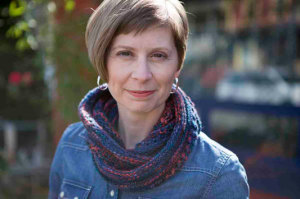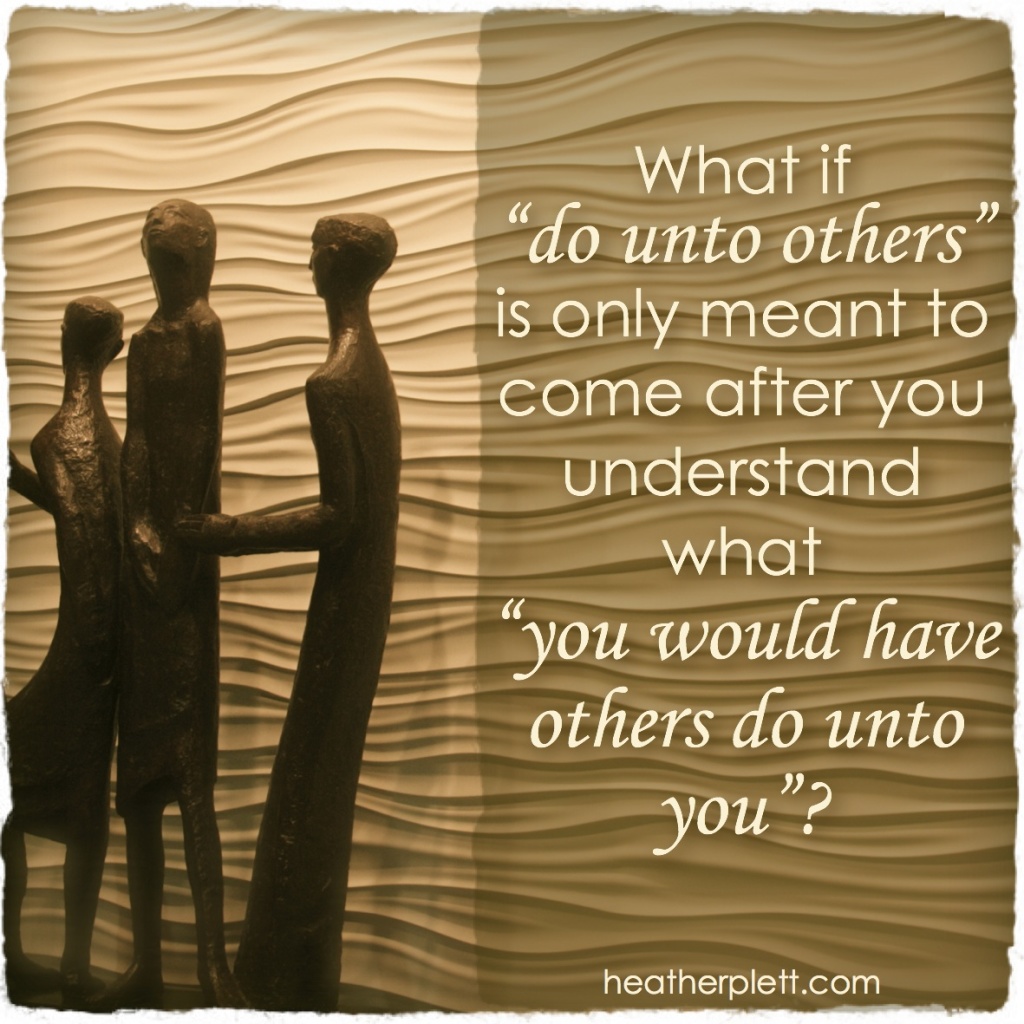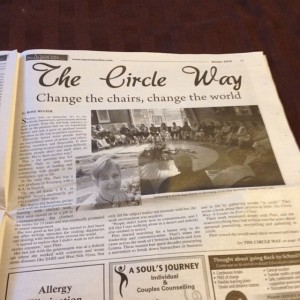Pilgrimage of Desire: An interview with author Alison Gresik
 A few nights ago, I was reading in bed when my husband turned to me and said “It must be a good book. You haven’t taken your nose out of it all evening.” He was right – it IS a good book. It’s called Pilgrimage of Desire: An Explorer’s Journey Through the Labyrinths of Life by Alison Gresik. Reading it was like getting cozy in front of the fire with a glass of wine and an old friend who knows your thoughts before you even speak them. Let’s just say Alison and I have a LOT in common.
A few nights ago, I was reading in bed when my husband turned to me and said “It must be a good book. You haven’t taken your nose out of it all evening.” He was right – it IS a good book. It’s called Pilgrimage of Desire: An Explorer’s Journey Through the Labyrinths of Life by Alison Gresik. Reading it was like getting cozy in front of the fire with a glass of wine and an old friend who knows your thoughts before you even speak them. Let’s just say Alison and I have a LOT in common.
I was delighted when Alison got in touch with me (because she saw the parallels between her book and The Spiral Path). We arranged a Skype chat and then decided to interview each other on our blogs. I love her answers to my questions, because even though we think alike and both gravitate toward labyrinths and the Feminine Divine, we both bring something fresh to the narrative that helps us see things in new ways.
1. Tell me about your discovery of the labyrinth and how it helped you reframe your life’s journey.
My first memorable experience with the labyrinth was at a women’s retreat just before I turned 30. I was feeling quite anxious, depressed, and alone — I had been reading some feminist spirituality, Sue Monk Kidd and Carol Christ, and I felt like my image of God had been pulled out from under me.
We walked the labyrinth outside, as the evening was moving toward dusk. I had written down an intention to carry with me to the centre — I wanted God to give me a new name for herself, one that captured her feminine aspect but that also connected to the God of my youth. I was quite fearful that nothing would happen, but I actually had a powerful experience of meeting the Divine there, and receiving a name to call her: Amma.
The ritual around the labyrinth — the pattern marked on the grass, the lanterns, the women walking with me and holding the space outside — provided a strong and visible support for the encounter I had. Actually, I was so freaked out by how powerful the labyrinth experience was that it was a long time before I walked one again — I certainly didn’t make it a habit early on!
I didn’t come to see the labyrinth as a way of understanding my life’s journey until I wrote my memoir. Our year of travel had come to an early unexpected end, and we had settled in Vancouver, BC, where my husband took a job. And I was having a terrible time getting my bearings. It was one of the first major life decisions we’d made without months and years of preparation and choice, and even though it was a good place to be, I felt lost.
I had made several aborted attempts to walk labyrinths when we were in Europe during our year of travel, but something always kept going wrong. And finally, after a year in Vancouver, I was able to walk the Labyrinth of Light on Winter Solstice, which gave me a chance to say goodbye to everything that I’d left behind, to leave a totem of my grief in the centre (actually a lot of snot and tears on my sweater sleeve), and to emerge into this new phase of my life with a lightened heart.
Writing about the last ten years helped me see and make sense of the recurring patterns, the reversals and progress. The geometry of the labyrinth comforted and bolstered me in very tangible ways – physically and metaphorically.
2. Your book is called Pilgrimage of Desire: An Explorer’s Journey Through the Labyrinths of Life (which sounds a LOT like something I’d write, by the way). Can you tell me about the relationship between labyrinth journeys and desire? What does the labyrinth teach us about desire?
 I think that desire is what moves us through the labyrinth. There must be something that compels us, draws us forward or pushes us on, and I believe that is desire, a deep urge to go from one place to another. If we don’t want something — if our heart doesn’t want to beat, if our lungs don’t want air — then we’re not alive. And the labyrinth channels and directs that movement, that desire, in its mysterious unfolding path.
I think that desire is what moves us through the labyrinth. There must be something that compels us, draws us forward or pushes us on, and I believe that is desire, a deep urge to go from one place to another. If we don’t want something — if our heart doesn’t want to beat, if our lungs don’t want air — then we’re not alive. And the labyrinth channels and directs that movement, that desire, in its mysterious unfolding path.
Just today I was reading a quotation from Goethe that says, “Desire is the presentiment of our inner abilities, and the forerunner of our ultimate accomplishments.” In other words, desire is our drive to unfold to our full potential. So while the object of our desire might take the shape of something material — a career, a lover, a child, a creative work, a travel destination — underneath it’s a desire to become what we can become.
And the labyrinth helps us trust and follow that desire. It holds our faith and helps us feel safe in a process that can be terrifying.
3. In the book, you mention the concept of “containers of meaning” (correct me if I got the term wrong). I haven’t heard that term before and it intrigues me. It seems to me that both you and I see the labyrinth as a “container of meaning” in our lives. First, explain the term, and then talk about how the labyrinth serves as a container of meaning.
“Meaning container” is a term I learned from Eric Maisel, and essentially it’s anything — an activity, a relationship, a project — that we designate to hold meaning for us. What we do and what we have assume greater significance because they are poured into a meaning container, captured and gathering weight rather than draining away.
I love the labyrinth as a meaning container, because it’s not a static bucket — it’s got flow and change. The labyrinth’s cycles can embrace the meaning of one hour, one day, and an entire life. So for me, the labyrinth holds the significance of that first walk and my connection with Amma, and now it holds my memoir and the story of living and writing it, and it also holds the whole history and symbolism of the feminine. The labyrinth shows me synchronicity — like you and I discovering each other! It’s like a code that communicates volumes in a single image. I feel like I’ve only begun to scratch the surface of what the labyrinth can mean to me.
4. One of the other things you and I have in common is an evolving relationship with the Divine, starting with the traditional Christian view we were raised with and emerging into something different. How did your journey to the feminine Divine change your faith?
In practice, maybe not too much. I still attend an Anglican church, I sing in the choir, and I talk to God in my journal and in my head. I love being part of a community with traditions that celebrate the seasons of the year.
What did change was the tenor of my relationship with God, when she revealed herself as Amma. Leaving behind the judgmental image of a patriarchal God and identifying with Amma as female and as a mother helped me know myself as loved in a way that I hadn’t before. I never felt the need to please Amma, I just knew she thought I was perfect and wanted the best for me. And of course it wasn’t God who changed, just my perception of her. I was able to let her in and be vulnerable with her.
I found this passage in my journal from just before meeting Amma: “I have a fear of exploring being a woman, that I don’t deserve to. That I might be a usurper. Why should I get to enjoy the healing that feminism can provide, if I haven’t been wounded by the patriarchy? Or am I afraid that if I look to closely, I will find those wounds? And even if I find them, wouldn’t other women laugh at them and say, that’s not nearly as bad as what I’ve been through. Those feelings of undeservedness and fear tell me that there’s definitely something up with this feminism thing for me. To think that I’m undeserving of it means I think it’s a good thing. To fear it means that I see it as powerful and life-changing. So those are reasons to keep an open mind, keep reading, and look for the Goddess.”
So coming to Amma was an initiation into the tribe of women that I’d never seen myself as a part of, and that encounter made me care a lot more about the ways gender affects our lives as humans.
5. In the book, you share a very personal account of the complexity of your relationship with your mom and your own experience of the “mother wound” (something that I was wrestling with as I watched my own mom die). Tell me about the experience of writing that so honestly and then taking the courageous step to share it with the world (including your family).
I knew from the beginning that my relationship with my mother was a very important part of the story I wanted to tell about claiming my right to be a writer. And I gave myself permission in the beginning to put everything I wanted to in the book and then sort out all the details later. I had the confidence to do this because I had a wonderful editor (Brenda Leifso) who I really trusted to help me walk the line between what served the story and what was just petty and unkind.
But honestly, when some of the events of our trip were happening as I was writing about it, particularly this conflict with my mom when we were in Detroit, I thought, never in a million will I write about this. I could never expose myself and her like that. And then the process of writing the book showed me what those events meant, and how they connected to what had happened in the past, and I could see they were part of the whole cloth of the story – I couldn’t cut them out.
I already had my parent’s blessing to write about the more ancient history in our family, particularly because we all saw the book as a means of helping others with similar struggles. So we built on that foundation when it came to working through more current events. In fact, the method we arrived at was that I would read them a chapter a week over a video call, because hearing it in my voice and seeing my emotion helped them process it better. Then they would respond, offer their perspective on events, correct my memory in places.
The saving grace, I think, is that my parents know we all have our own take on what happened, and they believe I’m entitled to tell my version. I feel very lucky that they can be that generous.
(By the way, if you want to read a pair of books that get even deeper into the workings of writing about one’s parents, I can highly recommend Alison Bechdel’s Fun Home and Are You My Mother?)
In the end I suppose I get my nerve to publish from the belief that this book wanted to be a thing. Pilgrimage of Desire came knocking and I signed on for the ride. I’m just beginning to see the impact the book has on its readers, and I already know that it’s been worth it.
Alison’s book, Pilgrimage of Desire, is now available to order. Go buy it! Trust me on this – you won’t regret it!
Also, go check out Alison’s post where the tables were turned and she interviewed me.


